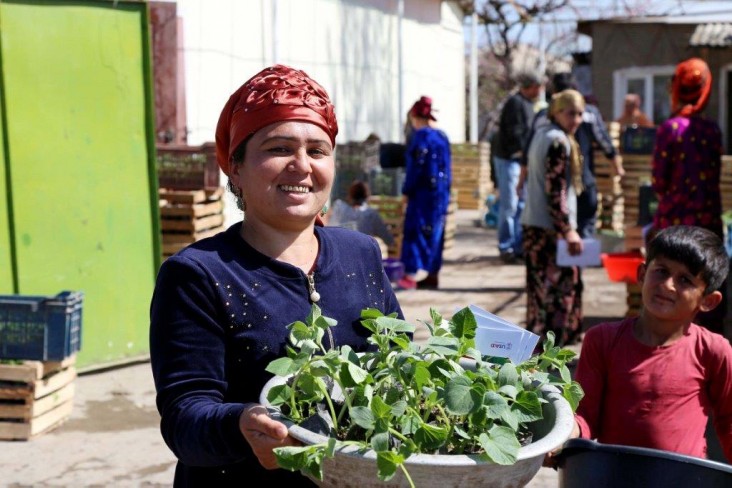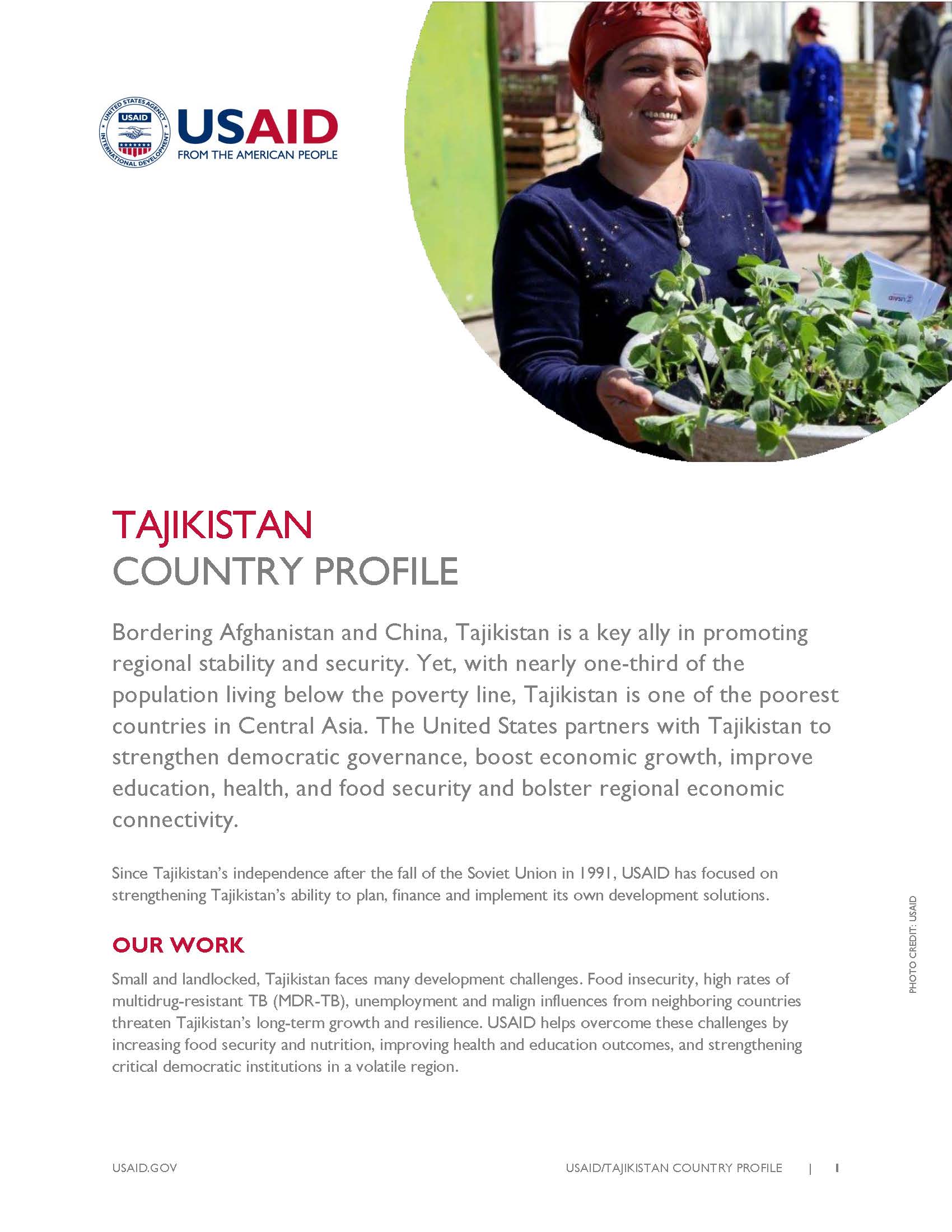Speeches Shim

Small and landlocked, Tajikistan faces many development challenges. Food insecurity, high rates of multidrug-resistant TB (MDR-TB), unemployment and malign influences from neighboring countries threaten Tajikistan’s long-term growth and resilience. USAID helps overcome these challenges by increasing food security and nutrition, improving health and education outcomes, and strengthening critical democratic institutions in a volatile region.
Tajikistan Country Profile 2019 ![]() (pdf - 229k)
(pdf - 229k)
Agriculture and Food Security
Malnutrition, food insecurity and limited access to markets threaten livelihoods and limit Tajikistan’s continued growth. To improve nutrition, increase food security and boost incomes, USAID provides thousands of farmers with high-yielding modern farming methods, high-quality seeds and equipment that help increase the production of profitable and nutritious fruits, vegetables and dairy products.
Democracy, Human Rights and Governance
A lack of basic services, human trafficking and limited freedom of the press hinder Tajikistan’s democratic growth and resilience. To strengthen democratic governance and improve citizen well-being, USAID is working to boost government accountability and oversight of basic service delivery. For example, USAID helps improve access to clean drinking water and gives migrant workers critical information about their rights and the risks of human trafficking. We also improve access to information by providing learning and networking opportunities for civil society and independent media outlets.
Health and Education
Tajikistan is home to some of the world’s highest rates of TB and MDR-TB, straining the country’s health care system and reducing economic productivity. With USAID assistance, the Ministry of Health is rolling out new treatment regimens for MDR-TB across 60 percent of the country’s districts, reducing treatment time from 24 months to nine months and improving health with new drugs. Building a healthy and strong future workforce, USAID works to improve primary education by providing age-appropriate reading materials in local languages and facilitating teacher trainings. This is helping to promote student- focused instruction, giving tomorrow’s leaders the skills they need to succeed.



Comment
Make a general inquiry or suggest an improvement.